“Discover ancient remedies that still work today, backed by science and tradition. Simple, time-tested natural cures for better health and wellness.”
Table of Contents
- Introduction
- Turmeric for Inflammation and Joint Pain
- Honey for Cough and Wound Healing
- Ginger for Nausea and Digestion
- Garlic for Immunity and Heart Health
- Aloe Vera for Skin Irritation and Burns
- Ashwagandha for Stress and Energy
- Licorice Root for Respiratory Relief
- Peppermint for Headaches and IBS
- Fenugreek for Blood Sugar Control
- Chamomile for Sleep and Anxiety
- Final Thoughts: Tradition Meets Science
Introduction
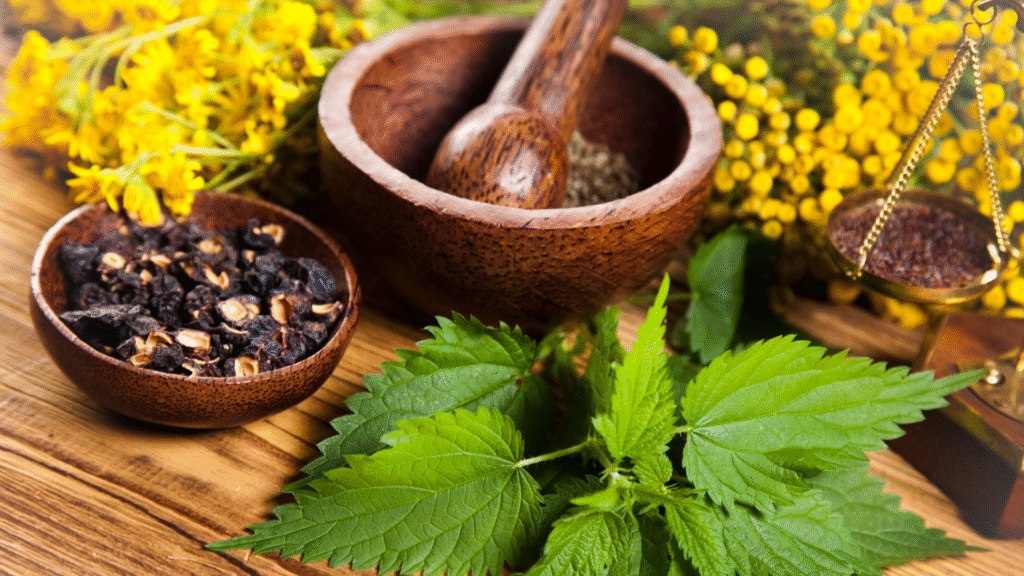
Many people have begun to rediscover the importance of ancient healing practices in this age of technology and advanced medicine. Natural remedies were the only option available for treating common illnesses and improving overall health for thousands of years. A lot of ancient remedies continue to hold their place in modern medicine and everyday life despite the advancement of medicine.
What makes these remedies so special? Many are backed by centuries of due to experimentation and experience, passed down through generations of cultures such as Traditional Chinese Medicine (TCM), the Ayurvedic system of India, ancient Egyptian healing remedies, and traditional knowledge worldwide. Today, science has started to prove the validity of these remedies with evidence-based research, which helps to highlight their benefits and mechanisms of action.
In this extensive blog, we will tell you the top 10 ancient remedies that are still effective today. Each remedy refers to a combination of traditional knowledge and scientific studies, which makes them a reliable option for holistic healing. These remedies offer practical solutions rooted in history and science, whether you are looking for ancient herbal cures, natural home remedies, or easy ways to support your health.
1. Turmeric for Inflammation and Joint Pain
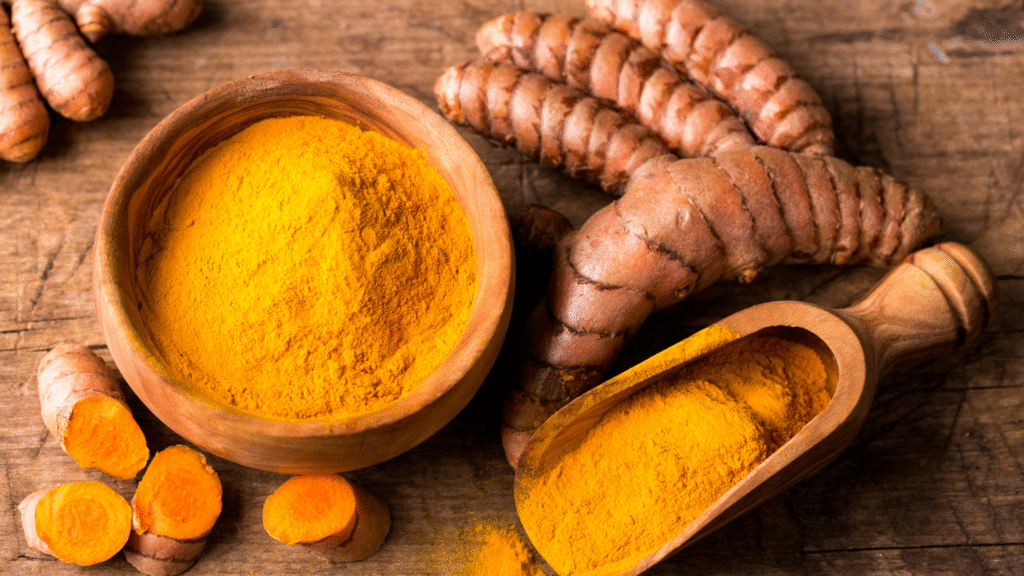
For thousands of years, turmeric, a vibrant yellow spice, has been used in Ayurvedic medicine. The primary compound responsible for its health benefits is curcumin, which has potent anti-inflammatory and antioxidant effects.
Traditional Use
In Ayurveda, turmeric is used to treat arthritis, digestive disorders, and skin conditions. It is also known to balance the body’s energies and promote healing.
Scientific Evidence
A study published on PubMed showed that curcumin can reduce markers of inflammation and pain comparable to non-steroidal anti-inflammatory drugs (NSAIDs) like ibuprofen, and it does not have harmful side effects. This makes turmeric a promising natural anti-inflammatory agent.
How to Use
- You can add turmeric powder to curries, soups, or teas.
- To enhance absorption, mix it with warm milk and a pinch of black pepper.
- After consulting a healthcare provider, use turmeric supplements standardized to curcumin content.
Benefits
- Relieves joint pain and stiffness
- Supports healthy inflammation response
- Promotes overall antioxidant protection
- It supports brain and heart health
- Aids digestion
2. Honey for Cough and Wound Healing

In ancient Egypt, Greece, and the Ayurvedic system, honey has been used for thousands of years across cultures, prized for its healing and antibacterial properties.
Traditional Use
Worked as a natural antiseptic, honey was applied to the wounds and used to soothe sore throats and coughs.
Scientific Evidence
According to the World Health Organization (WHO), honey is an effective remedy to relieve cough and has wound-healing properties due to its natural enzymes and high sugar level, which makes an inhospitable environment for bacteria.
How to Use
- To soothe a sore throat, take a spoonful of raw honey.
- For a natural cough remedy, mix honey with warm water and lemon.
- Apply honey directly to the skin on minor burns or cuts for faster healing.
Benefits
- Promotes healing and fights bacteria
- Soothes irritation in the throat
- Acts as a natural energy booster
- Source of antioxidants
- Replacement of refined sugar
3. Ginger for Nausea and Digestion
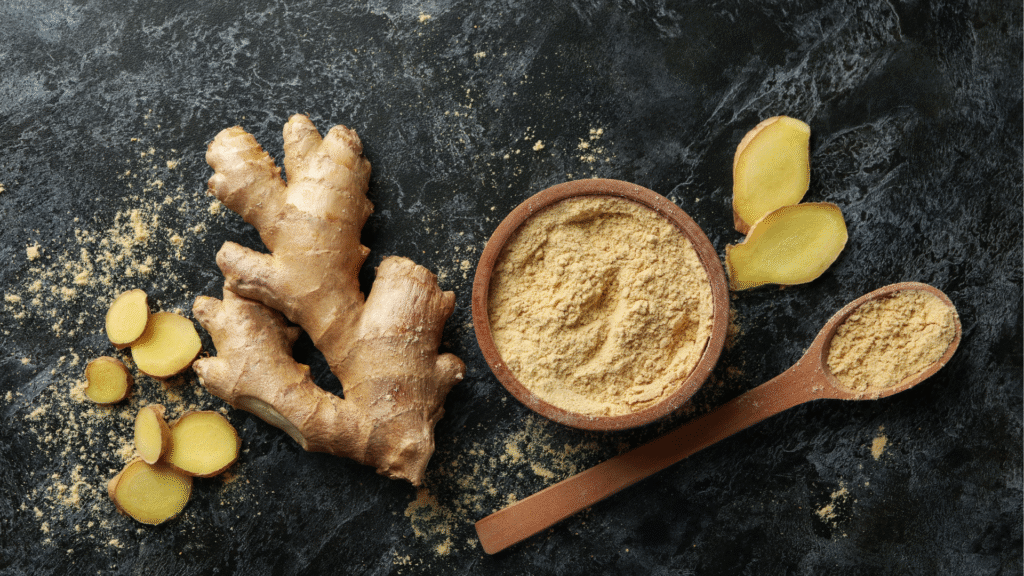
In Traditional Chinese Medicine (TCM) and Ayurveda, ginger has a long history as a remedy for digestive discomfort and nausea.
Traditional Use
Ginger was used to get rid of digestive problems, such as indigestion, bloating, and morning sickness.
Scientific Evidence
In the National Institutes of Health (NIH), Research confirmed that ginger is effective in reducing nausea caused by pregnancy, chemotherapy, or motion sickness. It also stimulates digestion by enhancing gastric motility.
How to Use
- Make fresh ginger root into a tea.
- Chew on small pieces of raw ginger.
- For concentrated relief, take ginger capsules.
Benefits
- Reduces nausea and vomiting
- Enhances digestion and gut motility
- Relieves bloating and gas
- Manages blood sugar levels
- Anti-inflammatory and antioxidant properties
4. Garlic for Immunity and Heart Health
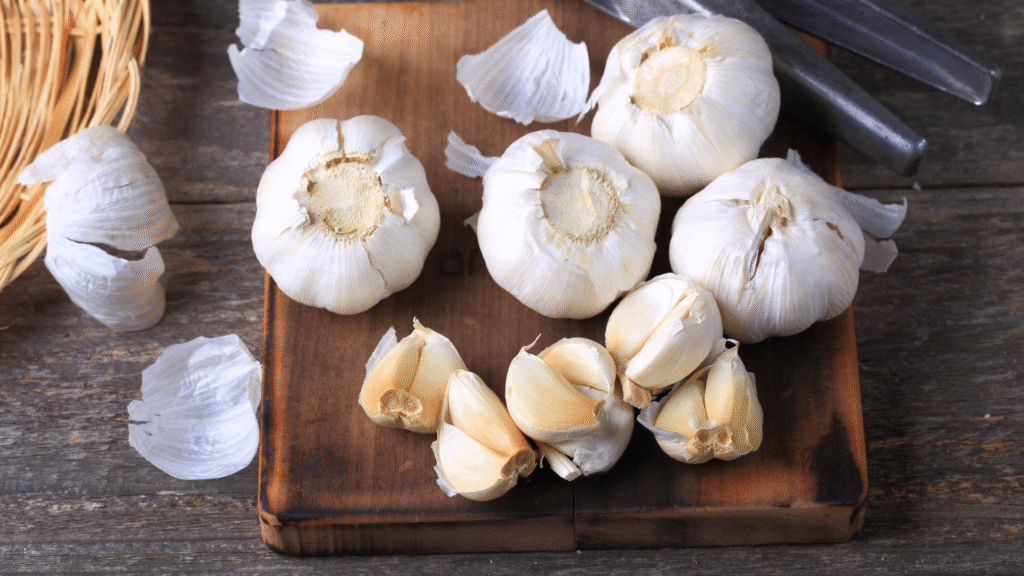
Garlic is a common cooking ingredient and a potent medicinal herb found in many ancient traditions for healing worldwide.
Traditional Use
In ancient Egypt and Greece, garlic was believed to boost strength and immunity. It was also used to treat respiratory problems and infections.
Scientific Evidence
Modern studies have shown that garlic has the ability to reduce blood pressure, lower cholesterol, and improve immune function, mainly due to its sulfur-containing compounds such as allicin.
How to Use
- Consume raw or lightly cooked garlic regularly.
- Add garlic to meals or take its supplements that are standardized for allicin content.
Benefits
- Increases immune response
- Supports heart health
- It has antioxidant activity
- Helps in lowering cholesterol levels and blood pressure
5. Aloe Vera for Skin Irritation and Burns
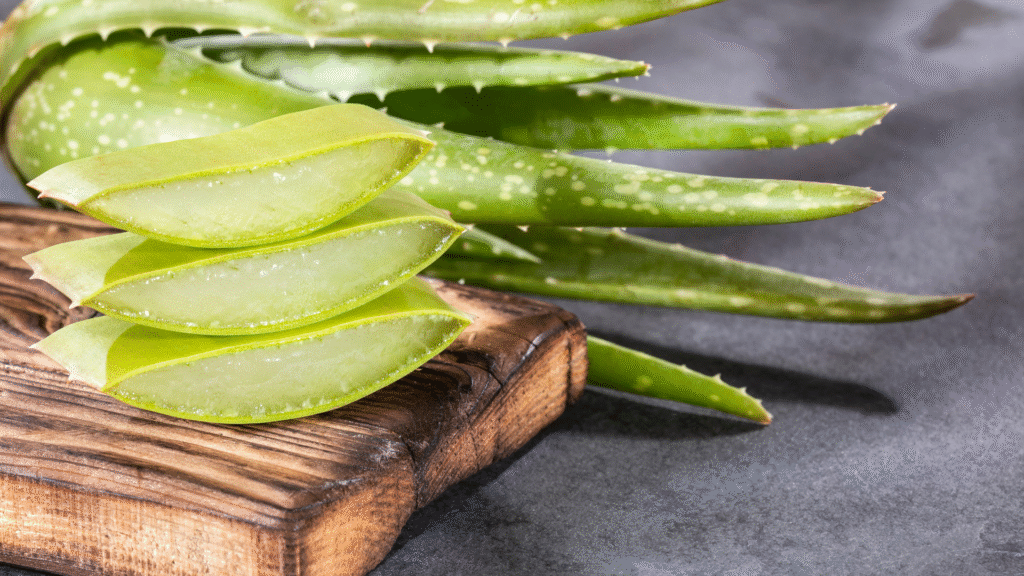
Since ancient Egyptian times, Aloe Vera has been used as a soothing agent for skin.
Traditional Use
Aloe Vera gel was applied directly to burns, wounds, and dry skin to promote healing and reduce inflammation.
Scientific Evidence
NIH studies confirm the efficacy of aloe vera in treating minor burns, healing wounds, and skin conditions such as psoriasis due to its anti-inflammatory and moisturizing properties.https://heathyhabit.online/
How to Use
- Apply fresh gel from the Aloe Vera plant directly on the skin.
- For skin care, use commercial Aloe-based creams.
Benefits
- Anti-inflammatory properties promote wound healing
- Heals minor sunburn and improves skin hydration
- Reduces skin inflammation
- Boost the immune system, support blood sugar levels
6. Ashwagandha for Stress and Energy
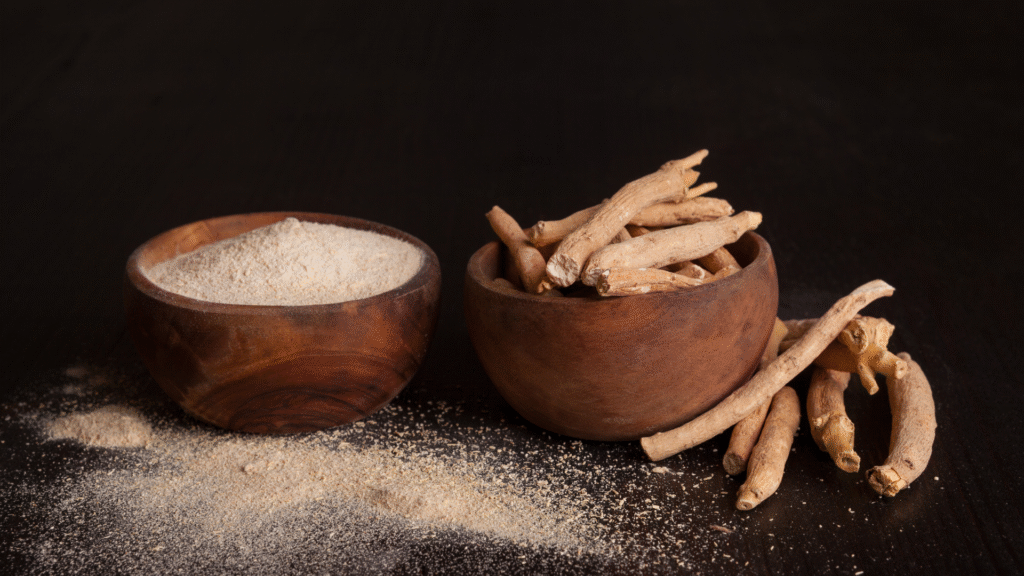
Ashwagandha is an adaptogenic herb central to Ayurveda, and traditionally, it is used to combat stress and fatigue.
Traditional Use
It is used to restore energy, improve mental health, and support emotional balance.
Scientific Evidence
Clinical trials suggest Ashwagandha helps to reduce cortisol (stress hormone) levels and may enhance memory and physical endurance in athletes.
How to Use
- Take Ashwagandha powder or capsules as recommended by a herbalist or healthcare provider.
Benefits
- Reduces stress and anxiety
- Boosts energy and stamina in athletic performance
- Supports mental focus and memory
- Helps to increase male fertility
7. Licorice Root for Respiratory Relief
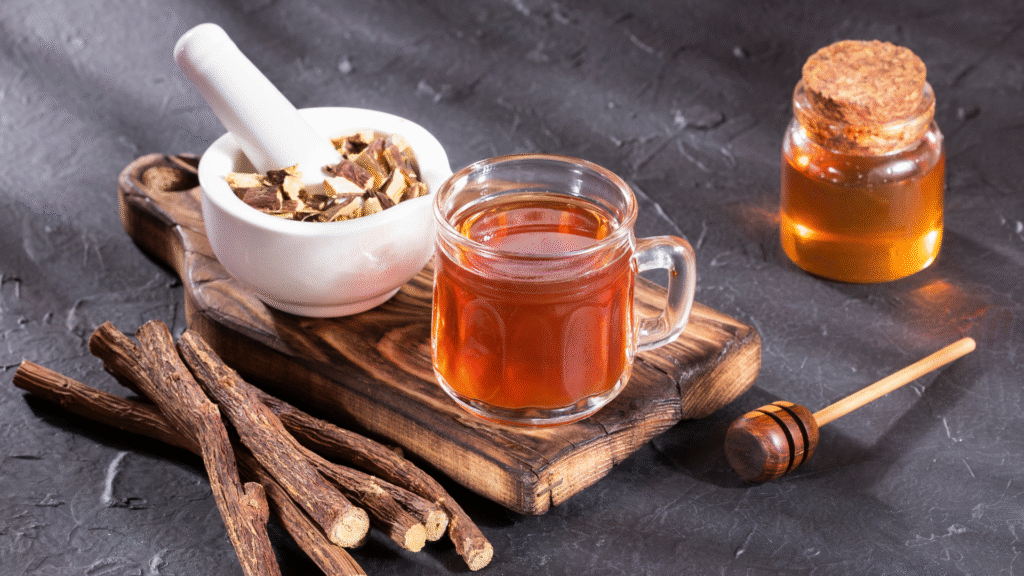
Licorice root has a pleasant and satisfying taste and is traditionally used in TCM and Middle Eastern medicine for respiratory health.
Traditional Use
It has been used to soothe sore throats, coughs, and digestive discomfort.
Scientific Evidence
Research showed that licorice root can reduce inflammation in the respiratory tract and has mild antiviral effects. However, caution is advised because excessive use can affect blood pressure.
How to Use
- Drink licorice root tea.
- Avoid if you are a hypertensive patient or are pregnant.
Benefits
- Soothes throat irritation and cough
- Protects the stomach lining from peptic ulcer
- Supports respiratory health
- It may be helpful for skin conditions
8. Peppermint for Headaches and IBS

In ancient Greek and Roman medicine, peppermint was very popular. It is known for its refreshing scent and digestive benefits.
Traditional Use
Used to reduce headaches, digestive cramps, and symptoms of Irritable Bowel Syndrome (IBS).
Scientific Evidence
According to PubMed studies, peppermint oil has antispasmodic properties, which may be helpful in relaxing gastrointestinal muscles and reducing headache symptoms.
How to Use
- Apply diluted oil to temples, or inhale peppermint oil.
- To ease digestion, drink peppermint tea.
Benefits
- Relieves tension headaches due to its muscle-relaxing and cooling properties.
- Reduces IBS (Irritable Bowel Syndrome) symptoms
- Aids digestion and bloating, and cramps
9. Fenugreek for Blood Sugar Control
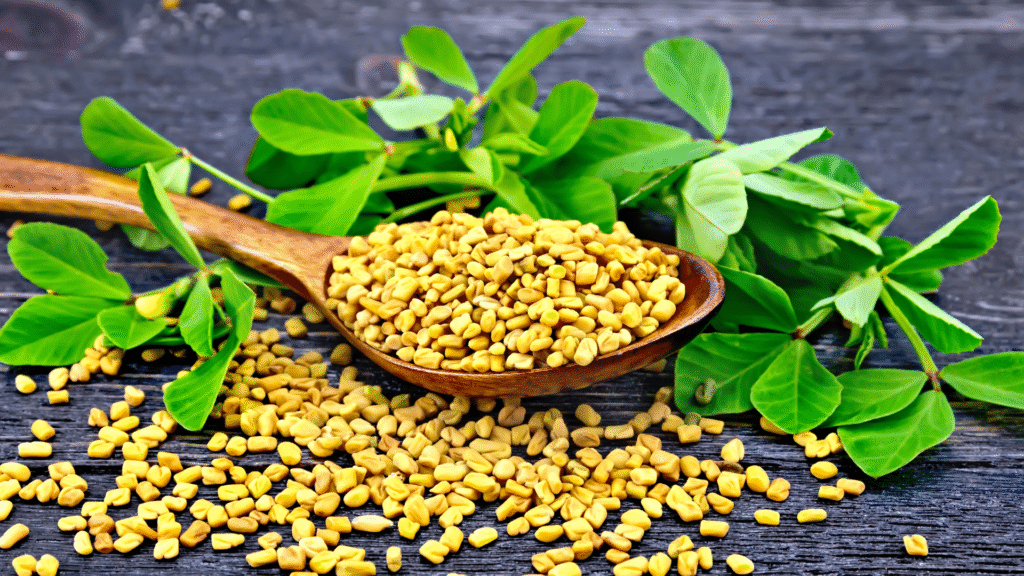
In Ayurveda and Middle Eastern medicine, fenugreek is a seed that is used for blood sugar management and lactation support.
Traditional Use
Fenugreek seeds have been used to support digestion, stimulate milk production in nursing females, and balance blood sugar levels.
Scientific Evidence
Many NIH studies indicate fenugreek may be helpful in improving glucose metabolism and insulin sensitivity.
How to Use
- Soak fenugreek seeds overnight and drink the water in the morning.
- Use ground fenugreek seeds as a spice.
Benefits
- Supports healthy blood sugar levels
- For nursing mothers, it enhances lactation
- Aids digestion
- Help in reducing inflammation
10. Chamomile for Sleep and Anxiety

In European and Middle Eastern medicine, Chamomile has been used as a mild relaxant traditionally for centuries.
Traditional Use
It is commonly used in the form of tea to calm nerves and improve sleep.
Scientific Evidence
Clinical trials have demonstrated that chamomile has the ability to improve sleep quality and reduce symptoms of mild anxiety.
How to Use
- 30 minutes before bedtime, drink a cup of chamomile tea.
Benefits
- It acts as a mild tranquilizer, promotes restful sleep
- Reduces mild anxiety
- prevent digestive discomfort
- can be used for skin conditions
Final Thoughts: Tradition Meets Science

Ancient remedies offer a collection of valuable things of healing wisdom that is still valid today. These natural remedies provide safe, gentle, and effective ways to improve health and well-being that are supported by centuries of traditional use and modern scientific research.
Natural home remedies and ancient herbal cures can be helpful in holistic healing, but it is essential to consult a healthcare professional before incorporating any new remedy, especially for people with chronic illnesses, pregnancy, or if you are on medication.https://www.harvard.com/
Try these time-tested remedies to complement your health and wellness routine, where tradition meets science for your healthy journey.
